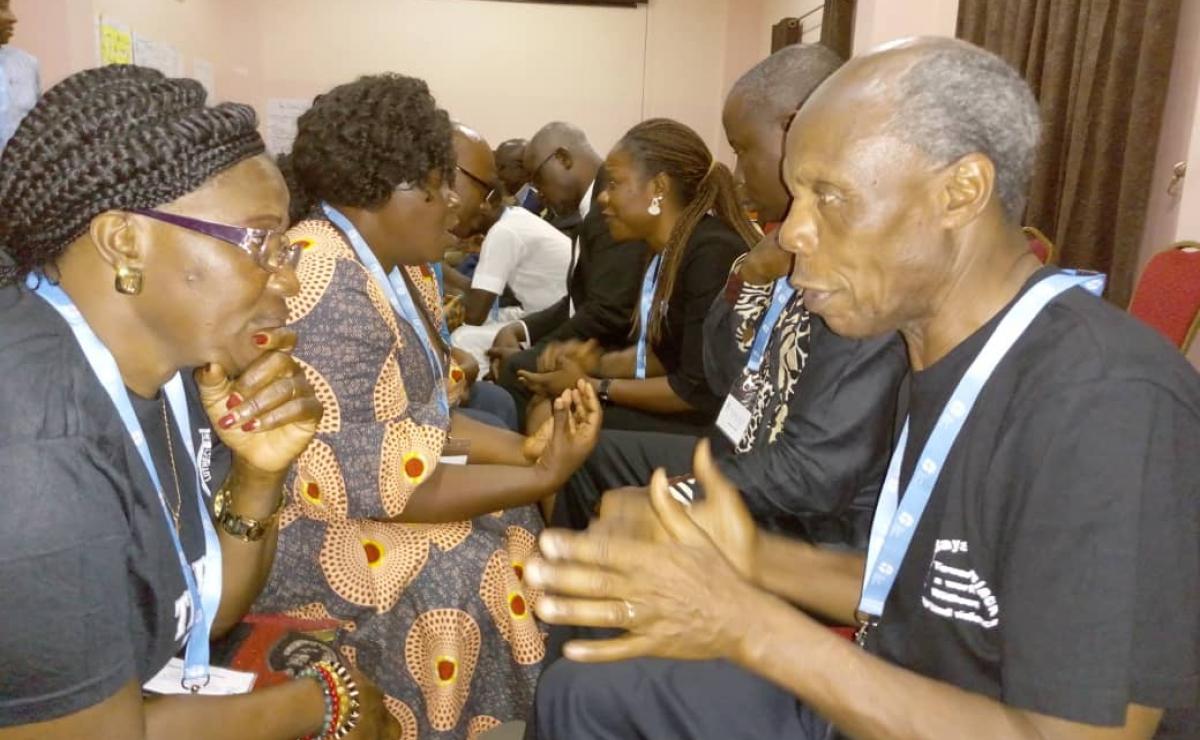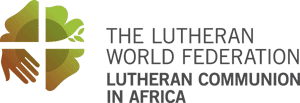Communique from the Regional Workshop

Communique from the Regional Workshop on Peace Building, Mediation and Conflict Transformation for Resilient Churches and Communities in Africa 10-16 November 2019 - Abuja, Nigeria
Preamble
A regional workshop on Peace Building, Mediation and Conflict Transformation for Resilient Churches and Communities was organized from 10 - 16 November 2019 in Abuja, Nigeria. In total 39 participants came from member churches of the three Lutheran World Federation (LWF) sub-regional expressions in Africa -- the Lutheran Communion in Central and Western Africa (LUCCWA), the Lutheran Communion in Central and Eastern Africa (LUCCEA) and the Lutheran Communion in Southern Africa (LUCSA). We as participants acknowledged the presence of the Archbishop of the Lutheran Church of Christ in Nigeria (LCCN) and LWF President Rev. Dr Panti Filibus Musa, the LWF VicePresident for Africa Rev. Dr Jeannette Ada Maina, LWF Council members, and staff from the Communion Office.
Peace, justice and reconciliation as part of LWF’s global strategy to strengthen local and global advocacy has been also prioritized by the leadership of the Lutheran churches in Africa (cf. Framework on Overcoming Poverty and Economic Injustice in Africa). Despite global and regional initiatives including the UN Sustainable Development Goals (SDGs) and the African Union Agenda 2063 (The Africa We Want), many countries continue to experience social and economic setbacks, with women and children being the most affected. Indeed, the situation at hand calls for exploration of innovative solutions to foster peace.
The LWF in collaboration with the Dialogue for Peaceful Change (DPC), a global network for conflict management, and the Ecumenical Church Leadership Forum in Zimbabwe (ECLF), sought to develop capacities of its human resources for managing different levels of tensions, disputes and conflicts and promote a culture of constructive problem solving, cooperative mediation, negotiation and dialogue, and conflict management in society. The workshop focused on the understanding of conflict and its social ramifications, mediation and conflict transformation, to ensure member churches and local communities become resilient. 2 Participants had the opportunity to deepen their understanding of peace, different models of conflicts and conflict resolution, conflict management, processes of mediation, and theological and biblical perspectives on conflicts.
APPRECIATION:
We appreciated the hospitality we received from the Lutheran Church of Christ in Nigeria (LCCN), in making logistics possible for participants and workshop facilitators. We appreciate as well the presence of the Lutheran Church of Nigeria (LCN). We were equally grateful to the Nigerian Government for facilitation in granting visas. Indeed the training has been an investment towards strengthening individual and collective capacities of the LWF member churches in Africa that were represented. Our gratitude to the LWF for organizing this significant and momentous event in the life of the church in Africa.
ISSUES
- Peace Looking for peace without specifying the content and context leads nowhere. It has to be linked with issues of justice, equal access to resources, gender equality, representation in society and inclusiveness.
- Skills Member churches need to acquire specific skills in peace building, mediation and conflict transformation in order to practice and become effective messengers of peace.
- Dependence and interdependence The impact of historical and cultural factors on the governance structures of the member churches in Africa tend to curtail the effectiveness of the churches’ initiatives in dealing with peace, mediation, conflict transformation and sustainability.
- Lutheran Identity and teachings Member churches need to be empowered on Lutheran identity and doctrinal teachings in order to gain a better understanding of their ecclesiology and the meaning of being church. This must involve their theological institutions and congregations.
THEREFORE
Moving forward, we – as participants in the workshop – commit ourselves to:
- Use the knowledge acquired to teach and facilitate peace building, mediation and conflict transformation in our churches.
- Create networks and deploy resources for peace building within our churches.
- Support similar efforts by other actors towards ensuring achievement of the SDGs in particular 1, 5, and 16 through mission and diakonia work.
- Intensify the efforts within member churches in resolving gender-based violence, leadership, power relations and conflicts over resources.
- Organize experience-sharing activities among the member churches in Africa and within the LWF Communion.
WE RECOMMEND THAT:
- Member churches in Africa intensify their role in peace building since development without peace is not sustainable and peace without development is not durable.
- Member churches in Africa deal with conflicts within themselves as much as they seek an unquestionable mandate to deal with the outside world. Here the issues of accountability and good governance are at the core.
- Member churches in Africa acknowledge composition of several cultures similarly to the society in which they are situated, hence skills and expertise by staff and church members for effective mediation and conflict transformation are needed.
- Member churches in Africa take cognizance of their own situations to adapt, contextualize and learn without losing their identity.
- Member churches in Africa are encouraged to adopt listening leadership in particular to their own members but also provide constitutional clauses that allow opening for mediation from within and from others with expertise.
